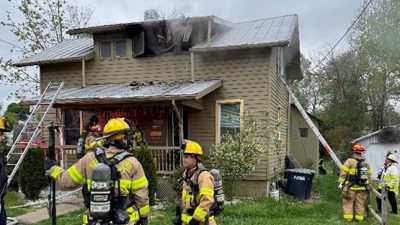
Burdensome rail safety legislation has once again been introduced in the Virginia statehouse and will cross Gov. Glenn Youngkin’s desk any day now.
SB 143, Railroad safety; Requirements for Railroad Companies Act, once a twin to HB 385, includes burdensome and redundant policies, like enforcing freight rail to operate with a two-person crew. The catch is, two person crews fail to actually improve rail safety. The same has been said about stalled federal legislation, The Railway Safety Act, also the inspiration for Virginia’s onerous bill.
Labor groups have voiced support for the legislation under the guise of rail safety, but despite the title and their well intentions, this legislation will not attain the safety results organized labor boasts it will – Governor Youngkin should get set to veto, and here’s why.
The notion that two-person crews are integral to improving rail safety has been refuted in several studies, including by the Federal Railroad Administration (FRA). In 2016, “FRA’s notice of proposed rulemaking conceded that ‘FRA cannot provide reliable or conclusive statistical data to suggest whether one-person crew operations are generally safer or less safe than multiple-person crew operations.’”
The FRA’s conclusion was confirmed by the consulting group, Oliver Wyman, and featured in a Wall Street Journal article last April. Wyman’s 2021 study stated that “statistical analysis of data from the ERA and FRA for the past 14 years found that countries with one-person crews have maintained a lower overall rate of significant accidents.” The study continued, “clearly, available accident data provides no basis for concluding that two-person crews are safer than one-person crews.”
Despite legitimate sources shutting down the need for two-man crews – including one from the industry’s regulating agency, organized labor continues to push legislation. This begs the question: What do unions seek to gain by getting the bill across the finish line?
The bill’s two-person crew mandate is self-serving for organized labor, ultimately driving and favoring union membership. As stated by the Reason Foundation in 2021, unions are pushing for government intervention in place of “collective bargaining negotiations between then union and railroad management” in hopes they will fare better than they would during private negotiations.
Failure to improve rail safety aside, overregulation of the rail industry could become a major deterrent for customers, ultimately disrupting a well-balanced industry. For instance, if a CSX train is heading south to Virginia it will need to stop as it crosses the state border to add another crew member to its already functioning team. This will disturb the flow of traffic, putting a strain on the country’s already recovering supply chains.
A disturbance of this magnitude could force customers to switch to freight rail competitor, trucking. This is a problem for a variety of reasons. Shipping freight via rail is 3-4 times more fuel efficient than truck, cutting emissions by 75% on average. Additionally, intermodal trains reduce road congestion and the wear and tear of roads, with its capacity to transport nearly 61 tons of freight annually per American.
The trucking industry, free of the government’s regulatory reigns, will grow, while “rail’s competitiveness will continue to fall relative to trucks.” Ultimately, this would backfire on the same people labor groups are trying to help – themselves. Senior Transportation Policy Analyst Marc Scribner notes that fading rail competitiveness “would inevitably lead to a smaller railroad workforce and fewer dues-paying union members.”
As legislation begins to make its way from the Statehouse to the Governor’s desk, it is important Governor Youngkin knows what is in front of him, and the power his pen wields on Virginia’s thriving rail presence. If Virginia policymakers want to make impactful changes across the industry, this isn’t the way to do it.
Dickie Bell represented the 20th District in the Virginia House of Delegates from 2009-2019










